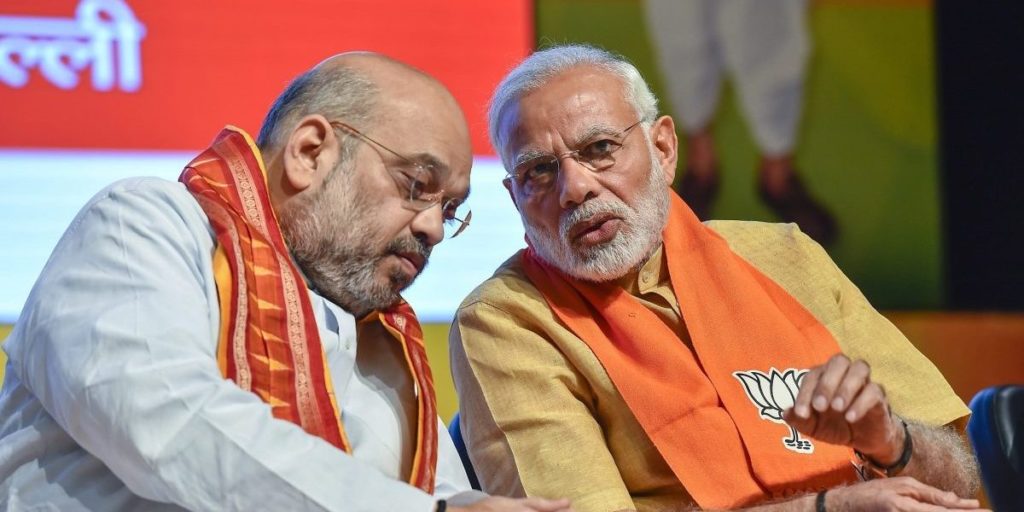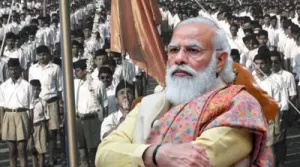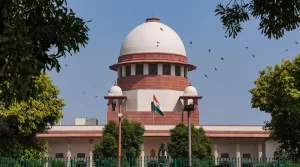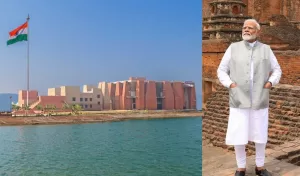Courtesy: The Wire Staff
In a surgical strike on two key elements of the Constitution that define the powers of states of the Indian Union in general, and the state of Jammu and Kashmir in particular, the Narendra Modi government has undone seven decades of official policy and taken the country into uncharted legal and political territory.
What’s the news?
Against the backdrop of massive troop deployments in J&K, the house arrest of mainstream politicians and the ouster of all tourists and Amarnath yatris from the state, Union home minister Amit Shah announced in the Rajya Sabha at 11 am on Monday that the government had decided to do away with J&K’s special constitutional status. This has been a longstanding promise of the Bharatiya Janata Party.
Also surprising, as the BJP has never spoken of it before, Shah introduced a Bill to essentially abolish Jammu and Kashmir as a state of the Indian Union and replace it with two separate Union Territories—the UT of Jammu and Kashmir and the UT of Ladakh.
“The Union Territory of Ladakh will be without legislature,” Amit Shah said. “Further, keeping in view the prevailing internal security situation fueled by cross-border terrorism in the existing state of Jammu and Kashmir, a separate Union Territory of Jammu and Kashmir is being created. The Union Territory of Jammu and Kashmir will be with legislature.”
Amid protests in the house, Shah said President Ram Nath Kovind had issued a presidential order, exercising his power under Clause 1 of Article 370, to make all provisions of the Constitution effectively applicable to J&K. Earlier, only those provisions with which the J&K government concurred were applicable.
Rather than abrogating or repealing Article 370, the government has essentially read down its provisions and used the legal fiction of the governor—who is a Central appointee—being the ‘state government’ to justify the president’s order.
Is this legal?
It appears, on the face of things, that both the reading down of Article 370 and the bifurcation of the state and the demotion of both parts to Union Territory status cannot be done in the manner Shah and the government hope to do it.
Article 3 of the Constitution says that before parliament can consider a Bill that diminishes the area of a state or changes its name, the Bill must be “referred by the President to the Legislature of that State for expressing its views thereon”.
This is an essential safeguard of India’s federal system and has clearly not been followed in this case. In parliament, Shah invoked the legal fiction that since the J&K assembly was dissolved and the state is under Central rule, it is parliament which gets to exercise the prerogatives of the assembly.
If the Modi government gets away with this logic, then any state of the Indian Union can be done away with in similar fashion. It is shocking that parties like the Aam Aadmi Party, Biju Janata Dal, Telangana Rashtra Samithi and YSR Congress have backed this move despite being strong supporters of federalism.
As for Article 370, before analysing its significance for Jammu and Kashmir, let us consider the stated provisions for its abrogation or dilution: Article 370 (3) clearly says:
“the President may, by public notification, declare that this article shall cease to be operative or shall be operative only with such exceptions and modifications and from such date as he may specify: Provided that the recommendation of the Constituent Assembly of the State . . . shall be necessary before the President issues such a notification.”
The presidential order purports to amend an unrelated article of the Constitution (Article 367) by adding a new clause which, inter alia, redefines the constituent assembly of the state as its legislative assembly. While the legality of this move is also questionable—there are Supreme Court judgments which have ruled that the dissolution of the constituent assembly effectively means Article 370 cannot be touched—at the very least the state’s assembly would have to back the move, which it hasn’t.
What does this mean politically?
Prime Minister Modi is turning the Valley of Kashmir into a Union Territory which will be ruled directly from Delhi. But in case you weren’t paying attention, the Valley of Kashmir has already been directly ruled from Delhi for more than a year—a de facto UT. And by Modi, indirectly, since 2015, when the BJP entered into an alliance with the Peoples Democratic Party that year. (The PDP is run by one of the three families that Amit Shah told parliament are responsible for all the corruption in Kashmir.)
In the time that Modi has been prime minister, he has presided over a deteriorating political and security situation in the state.
More soldiers and paramilitary jawans are getting killed today in militant attacks than before. Here’s what the government told parliament earlier this year:
In 2014, the total number of terrorist incidents in the state was 222. In 2018, the number was 614.
In 2014, the total number of security personnel killed was 47, Last year, it was 91.
In 2014, 28 civilians were killed in terrorist incidents. In 2018, it was 38.
Remember, when it comes to security, the Centre calls all the shots, whether there is an elected state government or not. Any improvement or deterioration in the security situation is a function of New Delhi’s handling.
It is against the backdrop of these unflattering numbers in Kashmir that Modi is gambling over something as fundamental as Article 370 and Jammu and Kashmir’s very status as a state.
Why is Article 370 crucial?
Article 370 has its origins in the Instrument of Accession which Maharaja Hari Singh signed to join the Indian Union in 1947. The Article gives J&K a unique status because these were the terms on which it acceded to India.
The details need not detain us but two aspects are noteworthy: India agreed to J&K’s demand that the national parliament would have primary responsibility for defence, external affairs and communications, but that any other laws would need the concurrence of the state to be applicable.
Second, under Article 7, the instrument of accession made clear that this did not amount to accepting any future constitution of India nor did it “fetter” the state’s right to enter into “arrangements” over any future constitution.
Although Amit Shah was right to say Kashmir joined India not thanks to Article 370 but because of the Instrument of Accession, what he did not mention was these sections of the accession document to which India remains formally committed.
Is Article 370 a temporary provision?
Despite several challenges to the provision on account of it allegedly being a temporary provision, courts have upheld that Article 370 is a permanent provision of the constitution. In a 2018 judgment, the Supreme Court said that although the article’s title noted it as ‘temporary’, it was very much of a permanent nature.
What are other political parties saying?
Responding to the morning’s proceedings, former J&K chief minister and PDP leader Mehbooba Mufti said this was the “darkest day in Indian democracy”. National Conference leader Omar Abdullah also said that the decision was a “total betrayal of the trust of people of J&K” and will have “dire consequences”.
Congress leader Ghulam Nabi Azad said that the BJP has “murdered” the Constitution and India’s democracy. The Janata Dal (United), a BJP ally, also said it did not want Article 370 revoked and did not support the government. JD(U) MPs walked out of the house to express their dissent.
The Bahujan Samaj Party will support all of the the government’s resolutions, party MP Satish Chandra Mishra said. The Biju Janata Dal, which claims to follow an equidistant policy with respect to both the national parties, also supports the government resolutions. Prasanna Acharya, BJD MP, said that since “Bharat Mata is supreme for us, we support the resolution”. He also said that no one bothered about the plight of Kashmiri Pandits all this while, and his party is happy that all Kashmiris will get their due following the resolution.
The YSR Congress Party also supported the resolution, as did the Aam Aadmi Party.
What does this mean for Kashmir?
The Centre’s fresh deployment of nearly 40,000 troops on the ground ahead of this announcement indicates that widespread protest is expected in the Valley. The Jammu and Kashmir People’s Movement party leader Shah Faesal told The Wire in an interview, “If Article 370 is repealed, India’s relationship with Kashmir will also end.”
Jammu and Kashmir is among one of the most militarised regions in the world at this moment. For the first time since 2008, the number of people who died due to conflict breached the 500 ceiling. The number of listed militants with government agencies crossed 300—the highest in a decade. In 2013, the year before Narendra Modi was elected to power, the number was just 78. Azaan Javaid, in an article Militant Recruitment Data in 2018 Is Telling of the Centre’s Failed Strategies in J&K published in The Wire notes that 2018’s recruitment numbers are the highest in over a decade—despite the massive crackdown on insurgent networks. Separatists have already been protesting any electoral participation with India, with much of the Valley abstaining from the vote in this year’s General Election.
In another article The Army Has Bared Its Iron Fist in Kashmir – and Wants Everyone to Know It published in The Wire, Ghazala Wahab says,
The truth is, in the last 20 years, the situation in Kashmir has never been as bad as it is today. Forget about talking to Pakistan, the government has no opening with the local people either.
Mainstream politicians have been discredited; and the separatists branded as criminals. Reaching out to the people of Kashmir is an empty slogan, because you don’t talk or negotiate with people, you do so with the representatives of the people. And who represents the people of Kashmir today?
The brutal answer is, nobody has a clue.




